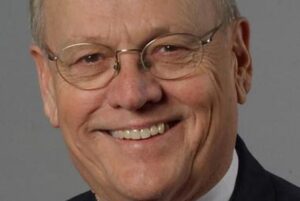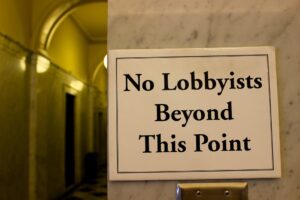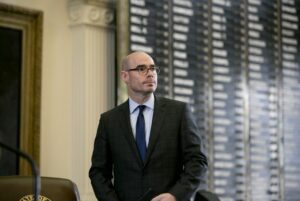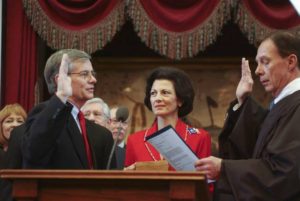Pete Laney’s name comes into my head when I think of the Texas speaker of the House of Representatives.
Laney is a Hale Center cotton farmer and businessman who once served as speaker … until Republicans took control of the Legislature. Then he got the boot prior to the 2003 Legislature.
One of Laney’s governing principles was to “let the will of the House” dictate the flow of legislation. He chose to avoid exerting the considerable power he possessed. My memory of the latest Democrat to hold the speaker’s gavel came to mind as I watched the current speaker, Republican Dade Phelan of Beaumont, seek to fend off an intraparty challenge from a first-time candidate named David Covey.
Phelan and Covey are headed for a runoff after neither man failed to win 50% plus one vote in the GOP primary. Covey finished first and Phelan finished second. Covey was endorsed by Texas Attorney General Ken Paxton. Why the AG endorsement? Because the “will of the House” produced an impeachment of the AG, who then was acquitted in the Senate trial.
Paxton is so angry at Phelan that he recruited Covey to run against the speaker who, by almost anyone’s reckoning, is a traditional GOP conservative.
Phelan has sought to tout the conservative legislation that the House has approved on his watch. That doesn’t matter to Paxton, who — along with Lt. Gov. Dan Patrick — calls Phelan a “liberal” speaker. They make me want to laugh — and then vomit!
Pete Laney established a reasonable template for how the Texas House speaker should conduct business. The House’s will resulted in an overwhelming impeachment vote on the way Paxton has performed as AG.
Paxton is angry that Phelan presided over a House of Representatives that saw fit to do its constitutional duty and rise up to effectively condemn the attorney general’s conduct.
I don’t know Phelan, nor do I know much about him. I know that he is the son of a prominent Beaumont developer who I did meet back when I worked in the Golden Triangle. I don’t know Covey, either, other than he is running for the first public office he has sought.
If the voters of Phelan’s legislative district have any brains, they’ll reject the trashy notion of replacing him just because he followed the path blazed by one of his predecessors as speaker.
He let the “will of the House” do its job.





